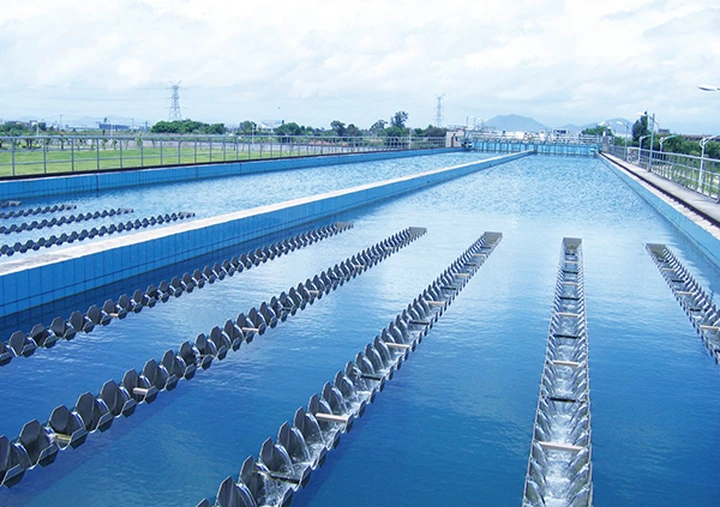
Water quality is an essential aspect of our environment, impacting everything from human health to aquatic ecosystems. As concerns about pollution and contamination grow, the need for effective monitoring becomes increasingly critical. This is where water quality sensors play a vital role, providing real-time data that helps ensure safe and clean water for various applications, from industrial use to drinking water supply.
BOQU Instrument has established itself as a leader in the development and production of water quality analyzers and sensors. Their range of products includes water quality meters, dissolved oxygen meters, pH sensors, and more. With a dedicated focus solely on water quality sensors and analyzers since its inception, BOQU Instrument has honed its expertise in this field, advancing technology and accuracy in water testing. Understanding the mechanisms behind these sensors reveals the intricate technology that contributes to our understanding of water quality and facilitates effective management of this precious resource.
Overview of Water Quality Sensors
Water quality sensors play a crucial role in monitoring the health of aquatic ecosystems and ensuring safe water for human consumption. These devices are designed to measure various parameters, such as pH, dissolved oxygen, turbidity, and chemical substances, providing real-time data that can inform water management decisions. With the increasing demand for clean water and the rising concerns over pollution, the importance of reliable water quality monitoring has never been more critical.
The development of water quality sensors has evolved significantly in recent years. Many companies, including BOQU Instrument, focus on the production of advanced water quality analyzers that utilize innovative technologies to enhance accuracy and reliability. These sensors are vital for various applications, including drinking water treatment, industrial processes, and environmental monitoring. Their ability to provide immediate feedback helps in identifying contamination issues promptly, reducing health risks to communities.
As the technology behind water quality sensors continues to advance, newer models are being equipped with smart capabilities and connectivity features. This allows for easier data collection, analysis, and remote monitoring, which is essential for managing large water systems effectively. With a strong emphasis on research and development, companies dedicated to this field are constantly improving their products to meet the evolving challenges of water quality management.
Key Technologies Used in Sensors
Water quality sensors employ various key technologies to deliver accurate and reliable measurements. One of the most common technologies used is electrochemical sensing. This method is particularly effective for measuring parameters such as pH, dissolved oxygen, and other ion concentrations in water. Electrochemical sensors operate by detecting changes in electrical signals caused by the analytes, allowing for precise quantification of contaminants and essential water quality indicators.
Optical sensing technology is another important component in modern water quality sensors. This approach uses light to detect changes in the water’s properties, often applying fluorescence or absorbance techniques. Optical sensors are especially beneficial for evaluating turbidity, color, and specific pollutants, as they can provide real-time monitoring with high sensitivity and low interference from other substances present in the water.
Additionally, advanced materials play a significant role in the development of water quality sensors. Sensors often incorporate nanomaterials or advanced polymers which enhance sensitivity, selectivity, and durability. These materials can improve the performance of the sensors under varying conditions, ensuring that they remain effective even in challenging environments. As research and technology continue to evolve, the integration of these advanced materials promises to enhance the capabilities of water quality analyzers significantly.
Types of Water Quality Analyzers
Water quality analyzers come in various types, each designed to measure specific parameters of water quality. One common type is the multiparameter water quality meter, which can simultaneously measure several important factors such as pH, dissolved oxygen, turbidity, and conductivity. These devices are versatile and essential for comprehensive water analysis, making them widely used in fields ranging from environmental monitoring to aquaculture. In the pursuit of better environmental monitoring, the development of Water Quality Measurement Devices for Laboratories has become essential, as these tools help track pollution levels and ensure the health of both humans and aquatic ecosystems.
Another significant type is the dissolved oxygen meter. This analyzer is crucial for assessing the health of aquatic ecosystems since dissolved oxygen levels directly correlate with the ability of marine life to thrive. Accurate measurements of oxygen levels help in the management of water bodies, ensuring that they meet environmental standards for aquatic habitats. Technologies such as optical sensors are increasingly being used in modern dissolved oxygen meters for more precise readings.
pH sensors are also vital components of water quality monitoring. They measure the acidity or alkalinity of water, which is critical for determining its suitability for various uses, ranging from drinking water supplies to agricultural irrigation. Effective pH management is essential for maintaining balance in ecosystems and for the efficiency of water treatment processes. With advances in sensor technology, pH sensors have become more reliable and easier to use, providing real-time data that supports effective water quality management.
Importance of Accurate Measurements
Accurate measurements in water quality are essential for protecting public health and the environment. Contaminated water sources can lead to serious health risks, including waterborne diseases and chemical exposures. Water quality sensors, such as those developed by BOQU Instrument, play a crucial role in ensuring that water meets safety standards. Regular monitoring using advanced sensors enables timely detection of pollutants and harmful substances, allowing for prompt action to safeguard communities.
In industrial applications, precise water quality measurements are vital for compliance with legal regulations and industry standards. Industries such as manufacturing, food processing, and agriculture rely on accurate data to maintain product quality and operational efficiency. Water quality analyzers help prevent costly disruptions and fines associated with non-compliance, ensuring that companies can operate sustainably while minimizing their environmental impact.
Moreover, environmental monitoring benefits significantly from accurate water quality assessments. Scientists and researchers need reliable data to study the effects of pollution and climate change on aquatic ecosystems. By utilizing advanced water quality sensors from BOQU Instrument, researchers can collect precise data that drives effective conservation strategies. This contributes to better decision-making, ultimately supporting the health of our planet’s water resources.
Future Innovations in Water Quality Monitoring
As the demand for clean and safe water continues to rise, innovations in water quality monitoring are becoming increasingly vital. One promising area of development is the integration of smart technology into water quality sensors. These advanced sensors can provide real-time data and utilize Internet of Things (IoT) connectivity to transmit information directly to users, enabling faster decision-making and more effective water management. The potential for remote monitoring and automated alerts can help industries and municipalities respond promptly to any changes in water quality.
Another exciting innovation lies in the use of artificial intelligence and machine learning algorithms. These technologies can analyze vast amounts of data collected from water quality sensors, identifying patterns and predicting potential water quality issues long before they become critical. By leveraging AI, water quality monitoring systems can enhance their accuracy and reliability, leading to smarter and more efficient water resource management. This predictive capability can ultimately protect public health and preserve natural water resources.
Lastly, advancements in sensor materials and technologies are paving the way for more durable and sensitive water quality analyzers. Researchers are exploring nanotechnology-based sensors that can detect minute changes in water chemistry with high precision. These next-generation sensors could revolutionize how we monitor not only traditional metrics such as pH or dissolved oxygen but also emerging contaminants that pose risks to both human health and the environment. As companies like BOQU Instrument continue to focus on the development and production of these cutting-edge devices, the future of water quality monitoring looks promising and transformative.


